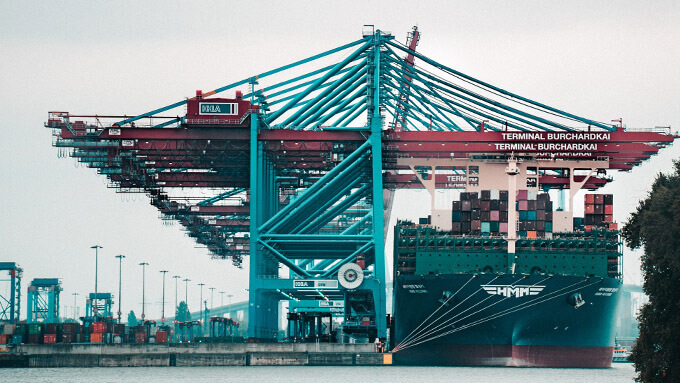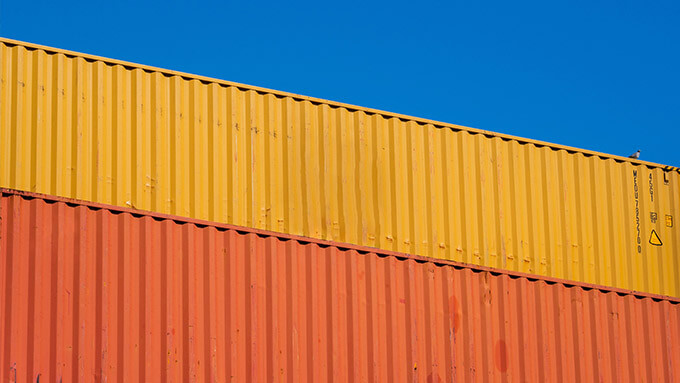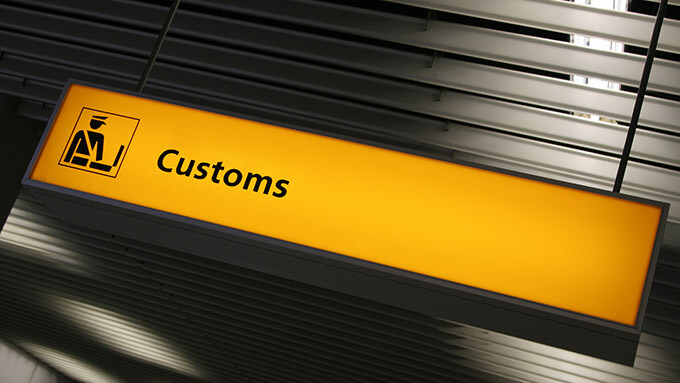One Regulation Applicable To All Turkish Ports
Introduction
The regulation applicable to all Turkish ports prepared by the Ministry of Transport, Maritime Affairs and Communications that entered into force after being published in the official gazette on October 31, 2012 (˝the Regulation˝), consolidates all the bylaws, regulations and instructions in a single Regulation. Thus the Port Regulations of Aliağa, Ambarlı, Anamur, Ayvalık, Bandırma, Bodrum, Ceyhan, Çanakkale, Dikili, Enez, Fethiye, Gelibolu, Güllük, Hopa, İskenderun, İstanbul, Karadeniz Ereğli, Karasu, Karataş, Kefken, İzmit, Mersin, Rize, Silivri, Şile, Taşucu, Tekirdağ and Tuzla have been abolished and the operations conducted in 70 ports will now be subject to a single regulation. As defined in Article 2 (1), the Regulation frames the duties, powers and responsibilities of the port authorities, as well as the responsibilities of the persons concerned with ships, vessels and shore facilities in relation to their maritime operations towards the port authority, excluding the port authorities situated in inland waters.
Scope
According to Article 2 (2), the Regulation is applicable, unless otherwise is specified, to all ships, vessels and shore facilities operating in the port’s administrative zone. Further, the Regulation contains special provisions for passenger ships, excursion ships and hydroplanes. However, state owned ships, military ships, and military shore facilities and vessels, or shore facilities belonging to law enforcement officers are not included in the scope of the Regulation.
Purpose
The Regulation standardizes and updates the port’s administrative zones and borders together with the anchorage berths. The new regulation aims to increase the efficiency of the services provided and facilitate better administration of the sea traffic. The rules relating to the navigation, approaching the dock and leaving the port of ships and vessels are revised. All forms of load and passenger transportation, place and time, pilotage and towing boat services are reframed. The Regulation attributes great importance to discipline and precautionary measures. A whole fifth section entitled ˝Discipline and Order˝, consisting of 17 articles, is reserved for the realisation of discipline and order in the ports. The Regulation has other provisions in other sections concerning the obligation to give prior notice in order to promote precautionary measures.
The Obligation to Give Notice when Entering the Port Zone
Ships and vessels weighing under 300 Gross Tons (˝GT˝) used for touristic activities such as excursions, entertainment or sport, and ‘home trade’ fisherman boats which approach the shore facilities assigned to them are not subject to the obligation to give notice. However the obligation to notify has been adopted concerning Turkish or foreign flagged ships or vessels navigating internationally (Article 9) as well as Turkish and foreign flagged ships carrying dangerous loads (Article 18). According to Article 9, the abovementioned ships and vessels are obliged to give notice twenty-four hours before entering the port zone, or if the navigation duration of the ship or vessel to enter the port zone is less than twenty-four hours after leaving the relevant port facility. Ships navigating internationally and carrying dangerous loads are also subject to complete the Dangerous Load Manifest Form and must notify the port authority in writing. Pursuant to the Regulation, ships carrying petroleum and derivatives thereof or other harmful and dangerous substances should carry out the necessary notifications to the port authority and bear the financial obligations required by the international agreements to which Turkey is a party. The Regulation specifies the administrative sanctions, which shall be applied upon violation of these provisions.
Dangerous Substances
The Regulation stipulates that ships carrying dangerous substances are within the obligation to notify an must adhere to the rules which should be applied and precautions which should be taken by the shore facility. Docks, piers, storehouses and warehouses allocated to explosive, inflammable, combustible and other dangerous substances shall be designated by shore facility management. The loading and unloading of the ships carrying dangerous substances shall take place in the docks and piers reserved for them. Further, if the unloaded, dangerous substance cannot be stored in the dock or pier it must be removed from the shore facility within the shortest possible period of time. In addition to regulating dangerous substances, the Regulation aims to provide a uniform organisation and prevention system by adopting rules which shall be followed and specifying preventive actions which shall be taken by the shore facilities (Article 19). This article comprises elements on prevention such as instalments and equipment for the loading or unloading of bulk fuel and an emergency discharge plan.
Berthing and Anchoring Rules
Rules on berthing and anchoring have been regulated in a comprehensive manner for ships subject to the obligation to give notice. Pursuant to Article 10 (1), the ships and vessels in question cannot berth or anchor without obtaining a waybill. No waybill can be obtained for ships and vessels that have more than twenty-four hours remaining on the expected arrival time affirmed in the general declaration during that time. Article 10 (2) excludes from this obligation ships and vessels that frequently berth and anchor, as well as those that provide certain listed services. To achieve uniform organisation and order, several circumstances have been taken into account while formulating the rules to which the ships and vessels must adhere in cases where there is no berthing space available.
Pilotage and Towing Boat Services
Article 13 of the Regulation requires the presence of a maritime pilot in certain ships and vessels. Tankers weighing over 500 GT, all ships and vessels transporting dangerous substances, Turkish flagged ships and vessels weighing over 1000 GT, foreign flagged ships and vessels weighing over 500 GT and foreign flagged commercial and private yachts weighing over 1000 GT which come alongside or leave the shore facility are obligated to use a maritime pilot. All foreign flagged military ships, when entering or leaving non-military shore facilities, are obligated to use a maritime pilot.
Special Provision for İstanbul and İzmit Port Authorities
Article 41 of the Regulation lays out special provisions on Turkish and foreign military ships visiting the İstanbul Port Authority. It also specifies that passenger ships can anchor in Dolmabahçe on the condition they obtain prior authorisation. Special principles have been adopted concerning the modes of transport of dangerous substances between the European and Asian sides in order to promote security. Also, limitations have been introduced concerning height restriction in the Istanbul and Izmit Port Authorities. For the Istanbul Port Authority it is stipulated that the ships and vessels which have a height greater than 58 meters cannot pass through. Ships and vessels whose height is between 54 and 58 meters can only pass through the Bosphorus accompanied by towing boats, the number and strength of which will be defined by the port authority. A similar rule concerning height restriction has been brought for İzmit Port Authority. Concerning traffic safety, situations of decreased visibility distance is also been regulated by the Regulation.
Powers of the Port Authority
According to Article 8 of the Regulation, the relevant personnel of the ships and vessels which navigate in a port’s administrative zone, which are in the shore facility or which wait at anchor, as well as relevant personnel in the shore facility or other relevant persons, are obligated to follow the directions within the scope of the Regulation and national or international statutory provisions given by the port authority regarding navigation, security of life, property and environment safety and security. The Regulation accords power to the port authority in order to fill the gaps in the security and prevention rules which are not governed in the Regulation. The shore facility operator is subject to the directives of the port authority in conformity with the Regulation and statutory provisions. In addition, in emergency situations pilotage and towing boat organisations should follow the directions of the port authority. Even though the Regulation has adopted uniform rules, it has also accorded some discretionary powers to the port authority for the conditions related to navigation, safety, life, property and environmental safety which may arise. Further, pursuant to Article 22 entitled ˝Matters Subject to the Authorisation of the Port Authority˝, prior authorisation of the port authority is necessary for activities such as buoying, diving, seabed and underwater studies, seabed dredging and similar activities within the port administrative zone. In accordance with the Article 38, the port authority has the duty and authority to inspect in the port. Article 10 (i) stipulates that port authority approval is required for the berthing and departure of tankers carrying LPG, LNG combustible and inflammable explosive loads to the shore facilities at night.
Conclusion
The port regulation in question aims to install a balance between Turkish ports in terms of competition, effectiveness and security, and promotes uniformity. The Regulation is aimed at sustaining the continuity of efforts related to taking initiatives, renovation, investment and the augmentation of effectiveness. It is expected that by granting limited discretionary capacity to the port authority, within the framework of the general rules, the Regulation will have a positive impact on transparency and efficiency, and hence will encourage an increase in the volume of sea trade.
All rights of this article are reserved. This article may not be used, reproduced, copied, published, distributed, or otherwise disseminated without quotation or Erdem & Erdem Law Firm's written consent. Any content created without citing the resource or Erdem & Erdem Law Firm’s written consent is regularly tracked, and legal action will be taken in case of violation.
Other Contents

This legal post examines the decision of the 11th Civil Chamber of the Court of Cassation numbered E.2024/1865, K.2025/478 (“Decision”). The Decision is significant in terms of the rejection of transfers of registered shares in joint stock companies by the board of directors, the legal validity of such rejection…

Capital increase in privately held joint stock companies is an important transaction that allows the company to grow and meet its financing needs by strengthening its equity structure. A capital increase means an increase in the amount of the company's ordinary/registered capital and is realized with the...

Article 408, paragraph 2, subparagraph (f) of the Turkish Commercial Code No. 6102 ("TCC") lists the "wholesale of a significant amount of company assets" among the unassignable and exclusive duties and powers of the general assembly. However, this provision does not clearly regulate what is meant by the...

To ensure economic stability in Turkiye and preservere the value of the Turkish Lira, an amendment was introduced to Decree No. 32 on the Protection of the Value of the Turkish Currency through Presidential Decree No. 85, published in the Official Gazette No. 30534, dated September 13, 2018. This regulation...

In the rapidly digitalizing world, e-commerce is spreading rapidly, strengthening the impact of sales made via the Internet and traditional channels. According to the Ministry of Trade data for 2023, Türkiye's e-commerce volume increased by 115.15% compared to the previous year, reaching 1.85 trillion Turkish liras...

In an extraordinary dissolution, ex officio cancellation from the trade registry without liquidation is regulated under the provisional Article 7 of the Turkish Commercial Code No. 6102 (“TCC”). Under Paragraph 15 of the relevant provision, the creditors of the company or cooperative, which was ex officio canceled...

As the global business landscape evolves, foreign companies increasingly seek to expand their presence in promising markets. Türkiye, positioned between Europe and Asia, offers suitable opportunities for this expansion. Among the methods foreign companies use to establish a foothold but not a company in...

In joint stock companies, the body in charge of managing and representing the company is the board of directors. The members of the board of directors are liable to the company for the damages caused by their negligence in the performance of their duties...

Sales contracts are the most common and most important contracts of commercial life . Determining the rights and obligations of the parties as a result of the defects encountered in the goods subject to the sale is one of the most common legal problems in commercial sales...

Under Article 365 of the Turkish Commercial Code No. 6102 ("TCC"), each member of the board of directors, which is the body responsible for the administration and representation of a joint stock company, is obliged to fulfill their duties arising from the law and the articles of association within the limits...

Law No. 7262 dated 27.12.2020 introduced an obligation to notify the Central Registry Agency (“CRA”) regarding the issuance and transfer of bearer shares under the Turkish Commercial Code No. 6102 (“TCC”) and stipulates that those who violate the notification requirement under Art. 486/2 of the TCC shall be...

Similar to previous years, in 2024, mergers and acquisitions (“M&A”) transactions continue to be shaped by global economic dynamics, geopolitical risks and technological innovations...

The common goal (in the ideal world) of people who become shareholders by participating in the capital of a company or managers by participating in the management body is to manage the company in the best way and to obtain maximum economic benefit...

The most common forms of agency agreements can be categorized under three main headings. These can be listed as an Agency Agreement, Distributorship Agreement, and Franchise Agreement...

Employee shareholding, which means the ownership of some or all of the capital of a publicly traded or closed company by employees, has attracted great interest in many countries around the world, particularly in the United States of America, due to the advantages it provides to the national economy, the...

There are many different rules that newly established companies must consider and comply with when starting their commercial activities. One of these rules is the "Evasion of Law" article regulated under Article 356 of the Turkish Commercial Code No. 6102 ("TCC"). The relevant rule aims to prevent the...

The Turkish automobile and light commercial vehicle market left the 2000s behind with steadily rising sales figures and the 2010s with high and stable sales figures as well. In this period, the growth of the market was driven not only by high purchase power but also by easy access to credit and product diversity...

Turkish Commercial Code No. 6102 ("TCC") provides the right to exit from the company to the shareholders of limited liability companies and the right to squeeze out the shareholder from the company, unlike the structure of joint stock companies, with the exit and squeeze out institutions specially regulated for...

Turkish Commercial Code No. 6102 (“TCC”) preserves the rule that the board of directors shall manage and represent joint stock companies. The TCC regulates how the power of representation shall be exercised, the registration and announcement of the persons authorized to represent, the transfer of the...

Merger and acquisition processes are one of the legal processes that most seriously affect the identities and legal status of companies. After the completion of legal, tax, financial and operational due diligence reports, the parties initiate the negotiation process in case they reach an agreement on proceeding with the...

A popular business model for expanding market reach and brand recognition worldwide is franchising. Despite being less common than distribution agreements in the form of mono-brand store agreements, franchising is another significant method for extending luxury brands' distribution networks. Luxury brands use...

In the decision dated 14.06.2022 and numbered 2019/149 E. 2022/894 K., the Court of Cassation General Assembly (“CCGA”) evaluated the theory of piercing the corporate veil in the context of the relationship between the guarantor and the borrowing company in a dispute arising from a loan agreement...

The European Union continues to be an important investment center for foreign investors. According to data from the European Commission's "Second Annual Report on the monitoring of foreign direct investment in the European Union", the European Union received €117 billion worth of foreign direct investment in...

Transfer of shares is arguably the first legal transaction that comes to mind among the legal transactions regarding the shares of a capital company, and the most common transaction in practice. However, the shares of a capital company may also be subject to various transactions, other than share purchase...

Law No. 6563 on the Regulation of Electronic Commerce (E-commerce Law or Law) has recently undergone a radical change in order to regulate the behavior of the players in the rapidly growing and developing e-commerce sector. The new regulations that came into force as of January 1, 2023 envisage important...

On 11 June 2021, the German Federal Parliament approved the German Supply Chain Due Diligence Act (Lieferkettensorgfaltsgesetz) (“Act”) which affects not only German entities but also their suppliers in foreign countries (including Turkish entities). The main focus of the Act, which entered into force on...

On 21 December 2007, the Federal Council approved the draft revision of the Swiss Code of Obligations, which also includes amendments to company law. On 28 November 2014, the Federal Council referred the draft revision for consultation. Following extensive discussions and a long enactment process, the...

The Turkish Commercial Code No. 6102 ("TCC") regulates maritime trade contracts under the fourth part of the fifth book of the Code. Among the types of contracts regulated in this section, the most frequently used contract in international maritime transport practice is the freight contract regulated under...

Prohibition on hidden income shifting is one of the most important issues that is broadly regulated under Capital Markets Law No. 6362 (“CML”). In conjunction with CML Article 21, which has a broader context than Article 15 of the abrogated Capital Markets Law No. 2499, another significant step has been taken...

As a result of developing commercial activities and large-scale investments, especially concluded in the fields of construction, energy and mining, companies are seeking to participate in these investments by uniting their powers and expertise to take advantage of financial opportunities together. This tendency...

The Turkish Commercial Code (“TCC” or “Law”) has enabled companies to apply different structural models and to implement new legal formations by including spin-off provisions to its Article 159 et seq. In accordance with the provisions of the law, companies may transfer a certain element, or elements, of their...

The International Federation of Consulting Engineers is a professional association established in 1913, known as the FIDIC (Fédération Internationale Des Ingénieurs-Counseils). Its members are duly elected from consultant-engineer associations of various countries, and membership to the association is...


Incoterms are a set of rules introduced by the International Chamber of Commerce (ICC) to explain the commercial terms that are widely used in international trade. The purpose of Incoterms rules is to facilitate and expedite international trade in a safe and secure manner...

As a rule, rights and obligations arising from an agreement have legal consequences only between the creditor and the debtor which are parties to the agreement. This principle is referred to as "privity of contract." In general, contracts for the benefit of third parties, where the fulfillment of an...

The rules of e-commerce, which grow and develop with the digitalizing world, are changing. E-commerce has become the driving force of the digital economy. However, considering the growth rate of e-commerce and the transformation it has undergone in a short time, it is obvious that some...

The dissolution of a company is a specific type of dissolution, which results in the cancellation of the legal personality which was gained by registration at incorporation. The specific proceeding which leads to the dissolution, and thus, the termination of a company upon the constitutive decision...

Companies in which shares or authority to manage is held by members of a family are considered to be “family businesses”. Family members can hold shares that control the company, as well as retain management authority. Having a family business means opportunity, security and income for...

Turkey ratified the Convention on the Contract for International Carriage of Goods by Road (“CMR”) in accordance with Act No. 3939 dated 7 December 1993, and the CMR entered into force in Turkey on 31 October 1995. In accordance with Article 1 / 1 of the CMR, the carriage of goods by road...

Ordinary partnerships are governed by Article 620 et seq. of the Turkish Code of Obligations No. 6098 (“TCO”). An ordinary partnership agreement is defined as an agreement whereby two or more persons undertake to join efforts and/or goods to reach a common goal...


The concept of disguised profit transfer in joint stock companies, in its broadest meaning, covers the transfer of company assets to related parties and may occur in different ways. This concept is regulated in detail under capital markets legislation...

Share subscription agreements, which are commonly encountered in start-up investments, set out the terms and conditions of an investor’s participation in a company as a shareholder by subscribing the new shares issued in a capital increase...

The electronic signature, which has the same legal consequences as wet signatures if it meets certain conditions, has taken its place in many legal systems and has enhanced commercial life. Although there are various types and applications in different legal systems...






























INCOTERMS are a set of rules introduced by the International Chamber of Commerce (ICC) to explain the commercial terms that are widely used in international trade. The purpose of the Incoterms rules is to contribute to and facilitate the safe and swift conduct of international trade...



















































































































